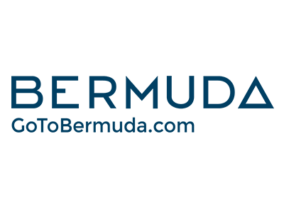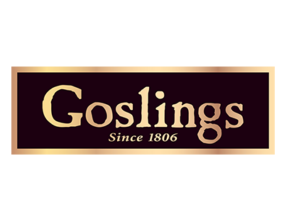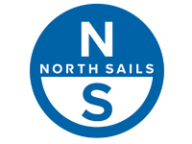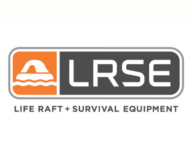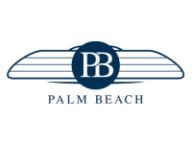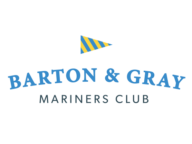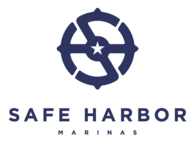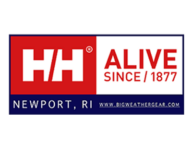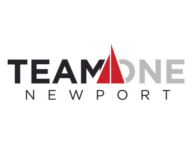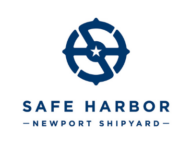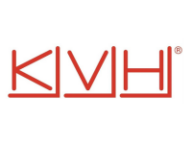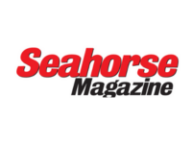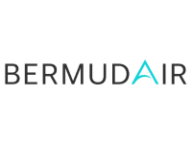Green Team Ideas
Collaborate with us!
We are looking for Green Team members to share their plans, tips, and best practices so we can all learn from each other! So please upload a document, link to a Google Doc, even just share a photo of what you have done to help make your team a little more environmentally friendly.
Questions? Contact [email protected]
| Name | Boat/ Organization | File Upload | Link to Doc | Optional Note |
|---|---|---|---|---|
| Pete Carrico | Liberator | DEOILIT-SDS.pdf | terramarine.net | We all are stewards of the sea and want to do our part to ensure we do no harm and do the right thing. |
| David Bice | Raven/ Rappahannock River Yacht Club | Fuel - We typically burn one tank (37 gallons) or less per year as we do not have a generator and at cruising speed, we use approximately .7 GPH...which is around 50 hours run time. In the Bermuda Race, we may use as much as 10 gallons total between start/finish and occasionally charging batteries, which are lithium (quick charging, high capacity). We typically use what is available locally...ValvTect Premium Diesel, which contains Bio Guard biocide. Plastic - We do not use plastic anything; everyone has their own water bottle, and we have 100 gallons of freshwater capacity PLUS a water maker that can produce 37 GPH. Water bottles are re-filled in the galley, which has filtered fresh water. We can use sea water for washing dishes. All kitchen utensils, cutlery, dishes (melamine), etc. are washable and re-usable; nothing disposable. Waste - Onboard trash goes into a designated bin, clearly marked in the galley area and gets properly disposed upon reaching land; basically, nothing goes overboard that is not biodegradable. Tissue paper is marine specific, bio-degradable, as well. Sails - As Raven is relatively new (to the owner and crew), we do not have any excess sails; thus, cannot claim to have recycled any...but may at some point, as we wear out the carbon sails. (Incidentally, that is why we will use cruising sails for delivery...they say every time a carbon sail luffs, it costs about $100...PER FLAP | ||
| David Bice | Raven/ Rappahannock River Yacht Club | The captain and crew of Raven are committed to winning and to the sustainability initiative. Two of Raven's initiatives have been the captain's installation of a water purification system, in order to avoid the use of disposable plastic, as well as the use of washable, reuseable dinnerware. Further, all meals are being prepped ahead of time or otherwise will be the result of fresh produce in an effort to keep the crew well nourished and to minimize the amount of trash resulting from packaging. As the crew's e-steward, it is wonderful to work with a group of individuals, who have already demonstrated a healthy commitment to sustainability and environmental awareness. | ||
| Chan Reis | NBR Green Team |  | vimeo.com | Guidance for trash & recycling at the Royal Bermuda Yacht Club for arriving 2022 Newport Bermuda Race sailors. This 2-minute video was excerpted from the captain's meeting in Newport, June 16, 2022. Presenter is Commodore Craig Davis, RBYC. Please pay special attention to his guidance on reusable drink cups. |
| Monica Pepe | Whale and Dolphin Conservation | vimeo.com | Pre-race briefing for 2022 Newport Bermuda Race sailors on the subject of whale sightings and marine mammal interaction while at sea. NBR sailors are encouraged to log sightings and marine mammal strikes. https://us.whales.org/ | |
| Chan Reis | NBR Green Team | Marine-Mammals-Short-brief-NBR22.pdf | For NBR sailors and delivery crews: 11 Hour Racing team (MALAMA) has provided this very helpful Newport Bermuda Race briefing on MARINE MAMMAL risks including: * Key take outs This is a must-see brief for NBR e-stewards. Consider making this part of a pre-race crew briefing. Note: Amory Ross is Malama's NBR e-steward. | |
| Chan Reis | NBR Green Team | youtu.be | P 2 of 2 See the attached link to 11 Hour Racing's YouTube video entitled "Best Practices for Sailors at Sea: Avoiding Marine Mammal Strikes". | |
| Chan Reis | NBR Green Team |  | 11thhourracingteam.org | P 1 of 2 |
| Damian Foxall | 11th Hour Racing | Hi to the Greenteam & Race organisers We would like to know: Please let me know if you need any support with this important topic? [email protected] | ||
| Cortney Kingsley | Salacia | Salacia-ESteward-1.pdf | Open the document for links and ideas! | |
| Spencer Meyer | Abigail | impactful.ninja | P 2 of 2 This link provides some of the best options for purchasing flight and travel carbon offsets. | |
| Spencer Meyer | Abigail |  | patch.io | P 1 of 2 We are racing with (6) and are thinking about our shoreside impacts, especially travel to and from the race. Age-old ideas like car-pooling are cool again! We're renting a van so our crew (6) can dramatically reduce our transportation carbon emissions. For those flying home (like myself), purchasing a carbon offset is an option. The link attached gives a great overview of carbon offsets - what they are and why they are good. The Green Team editor adds that there is something noble about Abigail, Jesse Terry's beloved 1956 Alden ketch (pic attached), storing carbon in the ribs, hull, deck and spars. |
| Chan Reis | NBR Green Team | Debris-Tracker-Guide.pdf | debristracker.org | Please see file attached showing simple instructions for using the Marine Debris Tracker. These were supplied by Kathryn Youngblood, Research Engineer & Citizen Science Director, Debris Tracker at the University of Georgia. |
| Brett Bidstrup | NBR Green Team |  | seabags.com | Give new life to an old sail and recycle it. Through the SEA BAGS Sail Trade Program, they make the process of donating a sail easy. And for every usable sail, they offer customers a Sea Bags product in trade. |
| Drew Plominski | Artemisia | Artemisia-Environmental-risk-analysis.pdf | We did a risk review and analysis of potential environmental hazards based on our previous race experience, scored the risks based on severity and likelihood to occur, and then came up with some mitigation strategies which will be employed during our race or have been executed during race prep. This is pretty basic in my opinion, but could be a good framework for future efforts. This style of risk analysis and mitigation (see attached PDF) is based on an ISO standard framework I use in my professional duties for design and safety risk reviews. | |
| Leif Heimbold | Momentum | centekmarine.com | This is a general FYI about a bilge filter that can filter out hydrocarbons including oil, gas and diesel fuel from bilge water. The manufacturer, Centek Industries, says this is done without increasing the pressure on the bilge pump. The filter is sold at West Marine and other marine hardware stores. I have used this product on my own boat. | |
| Christopher Andrews | Hakuna Matata |  | solbian.eu | Chris showed the Green Team a flexible solar panel manufactured by Solbian Marine mounted on the forward cabin trunk which provides auxiliary power to the battery system minimizing the need to run the engine to charge batteries. If it were not for refrigeration, he says this panel would power everything on the boat (Hakuna Matata is a Cal 39.) Just aft are two round solar powered vents (in lieu of cowl vents). They power fans for circulating air inside the cabin. They are lower profile and don't tend to bring on as much water. |
| Luke Babcock | ACE | wattandsea.com | We've deployed a Watt-and-Sea hydrogenator to keep vessel batteries topped up. Can mount on port or starboard side transom mounts, tilts up (like a dinghy outboard), and tethers to the lifelines (so it won't fall in while moving!). The drag at moderate speed aren't material, and whatever we lose we will gain by carrying less fuel. We've tested thoroughly and are confident it can keep up with all of our shipboard energy needs. | |
| David Johnson | Safir | Safir-Green-Boating-Plan-NBR-2022.pdf | Green Boating Plan for Safir NBR 2022 including tips and action plans | |
| Gretchen Biemesderfer | Shearwater | grove.com | Grove Collaborative is a great organization that brings together variously sustainably produced products for purchase. These include cleaning products, sustainable solutions for kitchen storage, personal care, products, among others. Grove plans to be plastic-free by 2025. | |
| John Webber | EcoWatch | ecowatch.com | As I’m sure you’re aware, everyone needs to be wearing sunscreen. We all know it’s critical to protect us from the sun’s harmful UV rays that can cause sunburns, skin cancer and other types of skin damage. But if the chemicals in certain sunscreens are hurting marine ecosystems, the question also begs to be asked: How safe is this sunscreen for humans? That’s why my team at EcoWatch created this guide: Your Sunscreen Is Toxic: How to Buy Sunscreen That’s Safe for You & the Environment | |
| Chan Reis | Newport Bermuda Race Green Team | Optional-Guidance-for-NBR-E-Stewards-1.pdf | As of May 14, 2022 about (50) Newport Bermuda Race skippers have designated an environmental steward on their crew rosters (see SailGate crew management). The file attached provides optional guidance for e-stewards developed with the assistance Dave Johnson on SAFIR. We welcome your input and ideas which you post here or email to [email protected] | |
| Annie Longo | Bermuda Race Green Team | Resources-for-Environmental-Stewards-in-NBR-2022.pdf | Hi! I'm part of the NBR Green Team, don't hesitate to reach out if you want to talk ideas 🙂 | |
| Chan Reis | Green Team Committee | seabags.com | Our Official Sustainability sponsor, Sea Bags encourages donations of used sails which are turned into handbags and other attractive accessories. Sails can be dropped off at any of their retail locations or you can arrange for a pick-up. Soon our sustainability web page will have more information on Sea Bags and links to information on their sail donation program. See this and other content under "Conservation Tips" | |
| Name | Boat/ Organization | File Upload | Link to Doc | Optional Note |

